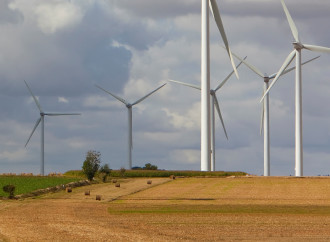
“Elections have consequences, and at the end of the day, I won.” – President Obama to House Republican Whip Eric Cantor, January 23, 2009
The same is true in 2016 with President-elect Donald J. Trump who promised to kill the controversial and likely illegal “Clean Power Plan” (CPP).
Now Xcel Energy and the Colorado Public Utilities Commission (PUC) need to get the message.
In Xcel’s most recent Electric Resource Plan (ERP, May 27, 2016) submitted to the PUC, the company assumes some type of additional federal carbon regulation, as the “Direct Testimony” of Xcel Energy’s Regional Vice President, Rates and Regulatory Affairs Alice K. Jackson states:
Q: HOW DOES THE PROPOSED CLEAN POWER PLAN AFFECT THIS 2016 ERA.
A: The recent stay of the proposed Clean Power Plan by the U.S. Supreme Court adds to the uncertainty the Company faces in this 2016 ERP. While there is some expectation that this environmental regulation will be reinstated with changes, even if it does not, we anticipate continued change and drive toward lower emitting generation resources. Accordingly, we will be looking for projects to fill our resource need – like the Rush Creek Wind Project discussed below – that move the Company and the State of Colorado toward compliance with the stayed Clean Power Plan.Q:GIVEN THE CLEAN POWER PLAN IS STAYED (AND MAY EVENTUALLY BE STRUCK DOWN OR MODIFIED BY THE COURTS), WHY SHOULD THE COMMISSION CONSIDER IT IN EVALUATING THE 2016 ERP?
A: I am not a lawyer, however, I understand that the laws of the State of Colorado direct the Commission to consider the potential costs of carbon dioxide regulation when evaluating utility proposals to acquire resources pursuant to § 40-2-124(1)(b), C.R.S., which provides that “[t]he commission may give consideration to the likelihood of new environmental regulation and the risk of higher future costs associated with the emission of greenhouse gases such as carbon dioxide when it considers utility proposals to acquire resources.” This statutory directive is implemented through Rule 3610(c), which applies it in the ERP context. This rule provides that costs associated with future environmental regulations, which would include regulations such as the Clean Power Plan regulating carbon dioxide emissions from power plants, may be considered in evaluating “utility proposals to acquire additional resources during the [RAP].” For these reasons, we have considered levels of carbon dioxide emissions and Clean Power Plan compliance in evaluating various resource acquisition strategies in this 2016 ERP.
Two things. Given the outcome of the national presidential election, the CPP is probably dead, and it’s unlikely there will be additional federal regulation on carbon so Xcel Energy shouldn’t be planning for it. Second, based on both the national and state election — Republicans maintaining control of the State Senate — results, the PUC also shouldn’t consider additional new environmental regulations to be likely in the next four to eight years.
Finally, the PUC should reconsider its rushed approval of the billion dollar Rush Creek Wind Farm boondoggle because it, too, is predicated on some type of additional regulation on carbon as stated in the testimony above.
Since Colorado won’t be forced to comply, why must ratepayers be forced to pay for a project that will only enrich Xcel’s shareholders?






